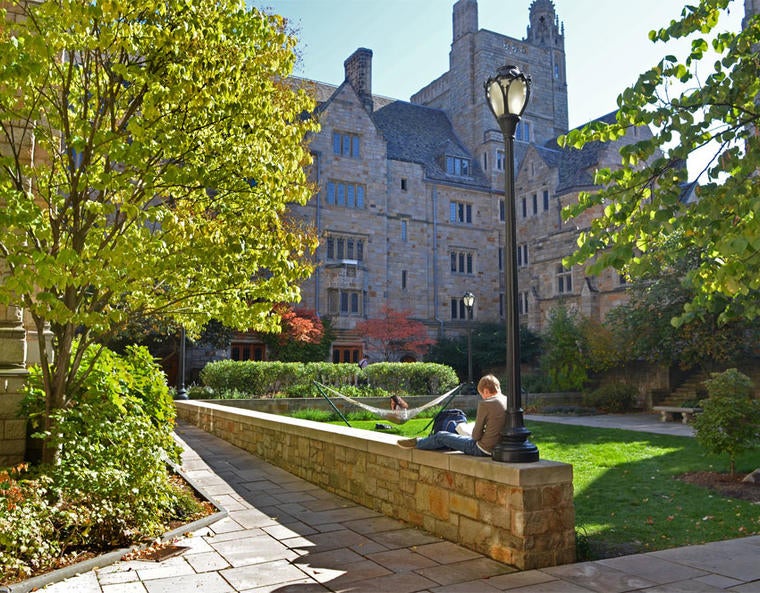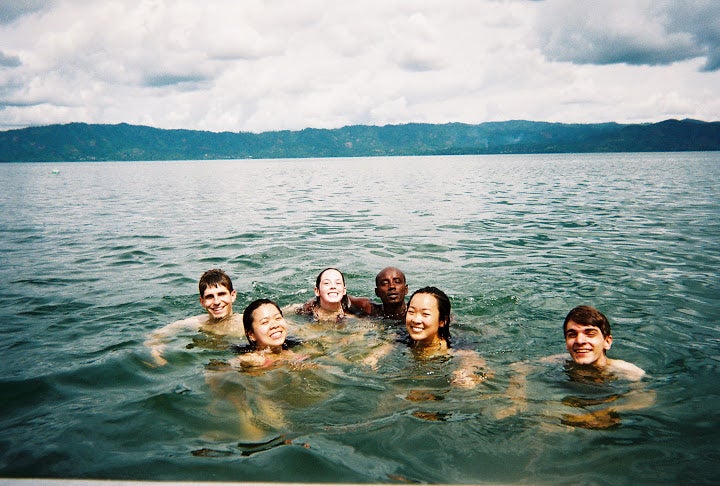
Despite how jetlagged we were after our nine-hour red eye flight, the first few days in Ghana were our most busy. From getting a crash course in pidgin, to visiting the UNICEF Ghana headquarters, and to spending a few days in the tropical paradise of Cape Coast, it was quite the whirlwind experience. Walking down the streets I was painfully aware of my status as an Obroni, or non-African; easy pickings for the very persistent street vendors, who would mob our group and always coax me out of several Ghana cedis (Ghanian currency) in exchange for any assortment of bracelets, beads, and African trinkets. I measured those first days in bites of sumptuous West African dishes like Jollof Rice and Groundnut Soup, all smothered in spicy Shito sauce. But while our first few days were all about sightseeing, we spent the majority of our time in Ghana working and teaching in an SOS Children’s Village, an international NGO that serves orphans and children who have dealt with abuse, abandonment, and neglect. Within an SOS village, groups of 7-8 kids are placed in a “family” home together, complete with a surrogate mother.
These permanent new families are often the first time many SOS children have had any sort of stability at home, and that security is their greatest asset as they reintegrate into society and go to school – the Kumasi village was home to eight such houses, with 7-8 SOS children per family, each with a mother. SOS Ghana runs two other villages – one in Tema (in the greater Accra region), and another in Tamale (located in the North). The kids attend the SOS school, located conveniently on the same campus as the residential houses. Interestingly, because the school is actually one of the best schools in the area, wealthy Ghanians also send their children to the same school (in many ways subsidizing the experience for the actual SOS kids), and the student make-up is an interesting mix of the once destitute and the privileged. I found the family-style set up and focus on reintegration to be a crucial part of the setup, as many of the children, despite the strides they have already made, struggle to keep up with their school work or adjusting.
During the school day we taught lessons, focusing on a creative writing-based literacy development project, but also covering subjects as diverse as Mathematics, Citizenship and Human Rights, Sex Ed, and Art (and nearly everything in between). After school, we were assigned to the houses, where we gave the SOS kids extra attention and help with their homework for a few hours each day, and gave their overworked mothers a little break. The kids called us either “Auntie” or “Uncle,” and I felt like a part of a family by the time we left. Spending time with the kids was a wonderful and gratifying experience, and over the course of the trip, I fell in love with Ghana and my fellow Yalies. Going in, I was actually a little guarded – given our short time frame, I wasn’t sure how much work we could actually achieve, and as I said before, I barely knew any of my fellow travelers.
But every member of our team threw himself or herself into teaching, and each became so invested in their SOS families – watching that process was inspiring, and despite our many differences (eight residential colleges, three class years, ten hometowns spread across three continents, all different majors, etc.), we were very close by the end of the trip. I was even thrown a surprise 19th birthday party on our last night before going home. When we weren’t teaching, we shared life stories and bonded during the field trips that we squeezed in on our days off – like visiting Nzulenzu, a village built on stilts and only accessible by an hour-long canoe ride through a lagoon, or hiking to a remote Ashante village and trying palm wine fresh out of the tree. It was in that village where a certain Ghanian winemaker asked me to be his wife – blushing, I declined, telling him I was too young and had to finish school before I got married.
You know you’re with a special group when twelve strangers become best friends in less than three weeks, and when you’ve found people who are willing to wait forty minutes with you for a nine minute Beyonce tribute video to load over the spotty internet. I think you could gauge how well we all got along by how easy it was for us to communicate with each other - be it in a joke at dinner or having serious discussions about the political challenges for West Africa or our hopes for our time Yale.
One of my favorite memories involved buying Kelewele (spicy fried plantains) from a street vendor before going out dancing at a live music venue. They played highlife and hiplife – two distinctly Ghanian genres of music – and a song currently tearing up the Ghanian charts, African Girls. The thumping beats and light tropical melodies of Ghanian music work wonders after a long, hot week at the school, we let loose in a manner reminiscent of a passage from Upton Sinclair’s The Jungle: “they stand in the middle of the floor, holding each other fast in their arms, rocking slowly from side to side and grinning seraphically, a picture of toothless and perspiring ecstasy.”
